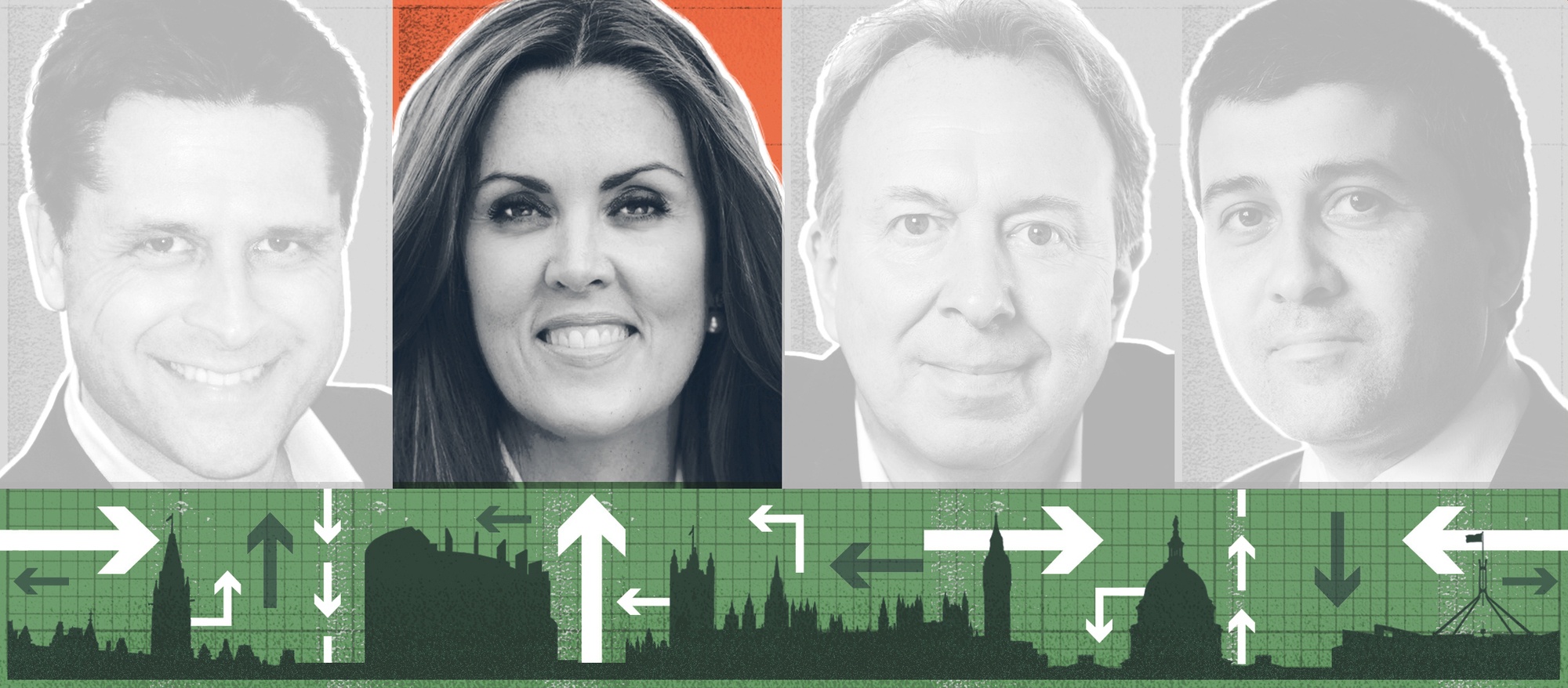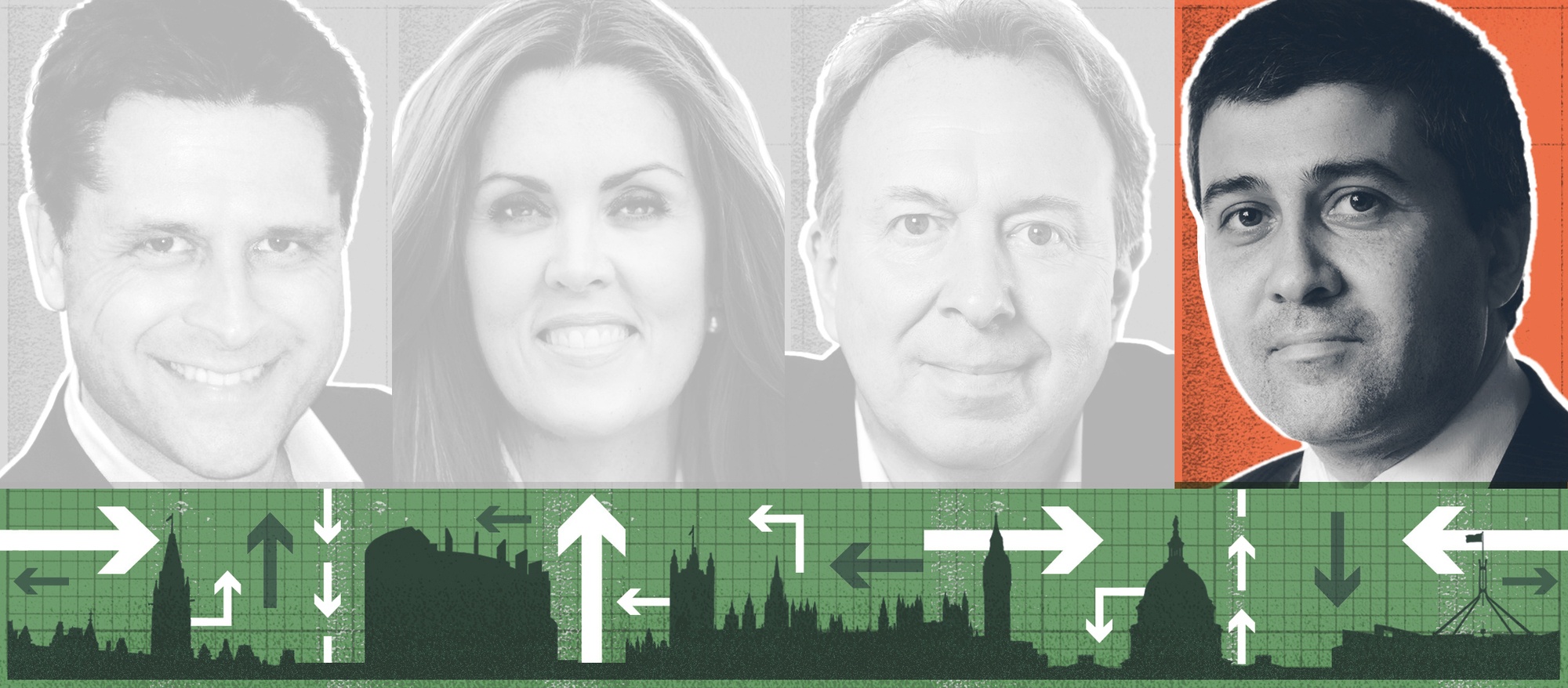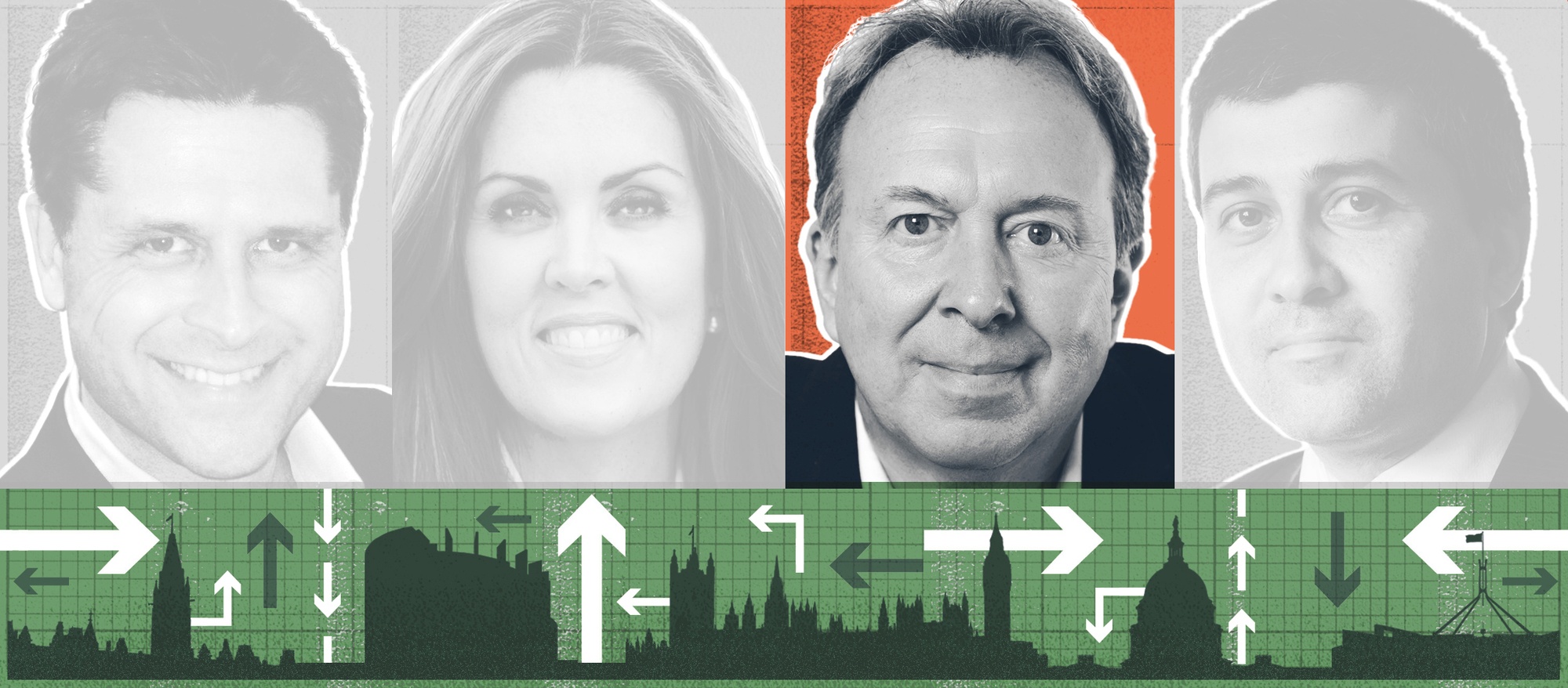Credit: Getty
Is the advance of left-wing politicians like Jeremy Corbyn and Bernie Sanders down to economic issues or are we seeing the long-term fruits of a gradual left-liberal ascendancy in education, arts and entertainment?
 Peta Credlin: “There’s no doubt that the corrupting influence of the post-modernist left in universities has had an impact. How many high school students, for instance, have converted “everyone is entitled to an opinion” into “all opinions are equal”? Still, you can’t design a car or build a bridge on the basis of gender studies and identity politics. The hard sciences, and the need actually to get on in the world, will eventually produce a fightback.
Peta Credlin: “There’s no doubt that the corrupting influence of the post-modernist left in universities has had an impact. How many high school students, for instance, have converted “everyone is entitled to an opinion” into “all opinions are equal”? Still, you can’t design a car or build a bridge on the basis of gender studies and identity politics. The hard sciences, and the need actually to get on in the world, will eventually produce a fightback.
“In some communities, it is already under way. With some of the world’s largest coal, gas and uranium resources, Australia is facing an energy crisis because we have re-cast sound economic policy in the light of climate change zealotry. Common sense and conservation should go hand in hand but we lost our way thinking we could change the world without a fiscal cost. It doesn’t work like that and when we’re responsible for less than 1.4 per cent of global emissions, it’s an economic suicide note. Climates change might just be the catalyst as politically correct climatology inevitably gives way to empiricism.”
 Sunder Katwala: “Culture and identity do appear to be at least as important as economics. Increasingly, the most important cleavage in many electoral contests is educational status: that the left is doing well among the increasing number of graduates is a potential source of long-term strength, but a considerable challenge in how to secure or manage a broad coalition to get elected or govern. The danger this presents for social democratic and centre-left parties is endlessly discussed.
Sunder Katwala: “Culture and identity do appear to be at least as important as economics. Increasingly, the most important cleavage in many electoral contests is educational status: that the left is doing well among the increasing number of graduates is a potential source of long-term strength, but a considerable challenge in how to secure or manage a broad coalition to get elected or govern. The danger this presents for social democratic and centre-left parties is endlessly discussed.
That a similar dilemma faces the democratic right has been rather less discussed, partly because academia is much more interested in the state of the left than the right. Both major British parties will want to win in Kensington and Mansfield at the next General Election. If parties of the right hope to make gains by being the socially conservative party of the blue-collar and left-behind voters, they may need to become less committed to a small state, low tax agenda and become more open to state intervention in the economy. If, as seems perhaps more likely, centre-right parties will remain ideologically sceptical about the size of the state, then it may need to pitch to more socially liberal younger voters in the south of England, the children of their existing voters, adopting a more measured approach to managed migration that could fit more comfortably with a generally pro-market philosophy.
“The right would hope to attract young voters whose ambition is to get a decent degree, find a good job and take out a mortgage on a property. So-called left-behind voters may then feel their voice is ignored, whether the issue is the financial crisis or immigration.”
 Steve Richards: “The left-liberal dominance in education, arts and entertainment has been a constant factor for decades and has made no difference to the fate of left-wing or right-wing political parties. In the UK during the 1980s a radical, left-inclined Channel Four was launched and left-wing comedians from Ben Elton to Alexei Sayle sold out theatres across the land. The Conservatives still won landslides. There was no connection between the two. The left-liberal ascendency in education, arts and entertainment is also countered by a largely Conservative supporting media in the UK, although the nature of that support has not always helped the Conservative Party, encouraging at times complacency or shallow thinking dressed up as modernisation.
Steve Richards: “The left-liberal dominance in education, arts and entertainment has been a constant factor for decades and has made no difference to the fate of left-wing or right-wing political parties. In the UK during the 1980s a radical, left-inclined Channel Four was launched and left-wing comedians from Ben Elton to Alexei Sayle sold out theatres across the land. The Conservatives still won landslides. There was no connection between the two. The left-liberal ascendency in education, arts and entertainment is also countered by a largely Conservative supporting media in the UK, although the nature of that support has not always helped the Conservative Party, encouraging at times complacency or shallow thinking dressed up as modernisation.
The more recent rise of Jeremy Corbyn, Bernie Sanders and others is related much more to economic issues than to a leftish culture. The fashionable slogans of our time are more revealing than they seem. Some voters feel ‘left behind’. The same voters want to ‘seize back control’. In the UK these terms are seen solely through the prism of Brexit, but they imply a need for mediating agencies that would help to make voters feel more connected. They reflect also a fear of more fractured working lives that leave some voters with a sense of fearful impotence.
“To some extent Corbyn and Sanders offer hope to voters in their faith that the state can intervene to address the fundamental causes of voters’ insecurity. In highlighting their outrage at widening inequality they imply at least that they would be willing to pull levers that will make a difference. Neither has been tested in government, but from the relative safety of opposition they offer hope. There is also plenty of space for One Nation Conservatives to put the case for powerful but efficient national or local institutions to play a more robust role in a global economy. Such a positive approach will have more impact than an attempt to emulate the ‘fashionable left’ in education and the arts.”
***
Yesterday the jury examined the general rise of the Left in advanced nations. Tomorrow it will look at volatility in democracies.









Join the discussion
Join like minded readers that support our journalism by becoming a paid subscriber
To join the discussion in the comments, become a paid subscriber.
Join like minded readers that support our journalism, read unlimited articles and enjoy other subscriber-only benefits.
Subscribe